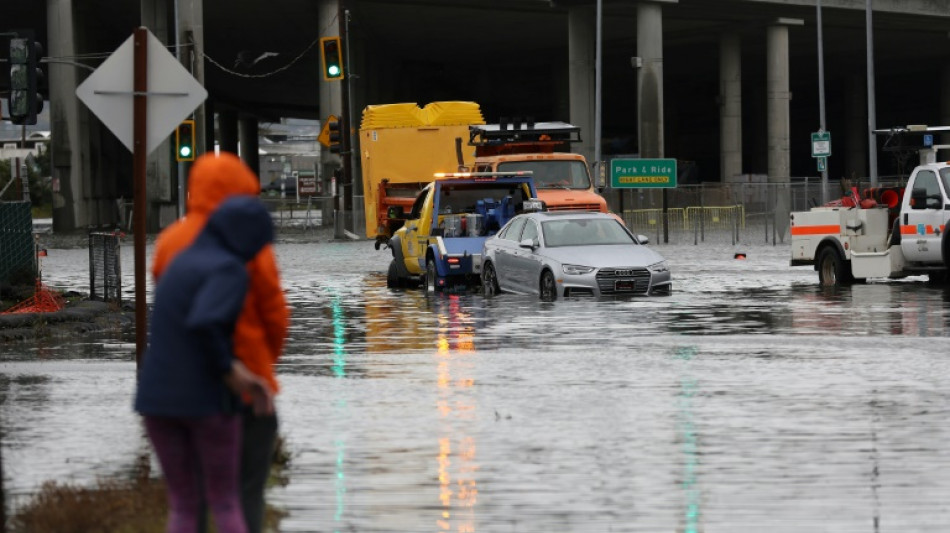
SCS
0.0200


A bomb cyclone smashed into California Wednesday, bringing powerful winds and torrential rain that was expected to cause flooding in areas already saturated by consecutive storms.
Authorities issued ominous warnings of threats to life and property for a vast stretch of the most populous US state, focused around San Francisco and Sacramento.
Forecasters said gusts of up to 45 miles (70 kilometers) an hour and intense rain could pummel the region through Wednesday, with the downpour continuing into Thursday.
Meteorologists at the National Weather Service said there could be "widespread flooding, roads washing out, hillside collapsing, trees down, widespread power outages, immediate disruption to commerce, and the worst of all, likely loss of human life."
California Governor Gavin Newsom declared a state of emergency "to support response and recovery efforts," while San Francisco established an Emergency Operations Center.
Bars and restaurants were shuttered as the city girded for the storm, with some people posting on Twitter that they were being sent home from work at midday.
Firefighters warned people to avoid one area where winds had blown glass out of an apartment complex.
Thousands of sandbags were being given out to residents fearful of flooding.
"We're very worried about it," Deepak Srivastava told CBS in San Francisco.
"(I) just spent all day putting sandbags in front of the garage at every entering point and we're just crossing our fingers and hoping we won't have more damage.
"We had a similar flood just last October... they call it a 100-year storm, but sounds like we might have two of those in one week."
City officials said they were working around the clock to try to help people prepare.
"We've been working very hard to source sandbags from wherever we can in northern California," said Rachel Gordon, of the city's Public Works department.
But she warned residents needed to take the storm seriously.
"If you don't have to be out in San Francisco, please don't be out on the roads."
The intense rain was brought about by a combination of a bomb cyclone -- a sudden steep drop in air pressure -- and an atmospheric river, where moisture-laden air is drawn in from the oceans.
Up to four inches (10 centimeters) of rain were expected in the Bay Area, with double that amount over nearby hills.
The Sierra Nevada mountain range was forecast to get several feet of snow.
The downpours come on top of a series of storms that have brought near-record rainfall over recent weeks.
On New Year's Eve parts of northern California were lashed by a storm that brought landslides and power outages, as levees were breached and roadways were flooded.
At least one person is known to have died after being trapped in a submerged car.
San Francisco recorded almost 5.5 inches (14 centimeters) of rain on December 31, the second wettest day for the city in recorded history.
The western United States is in the grip of a decades-long drought, with below average precipitation leaving river and reservoir levels worryingly low.
While forecasters say any rain is helpful, sudden downpours brought by heavy storms can do more harm than good as the ground struggles to absorb such high volumes of water so quickly, resulting in flooding.
P.Deng--ThChM